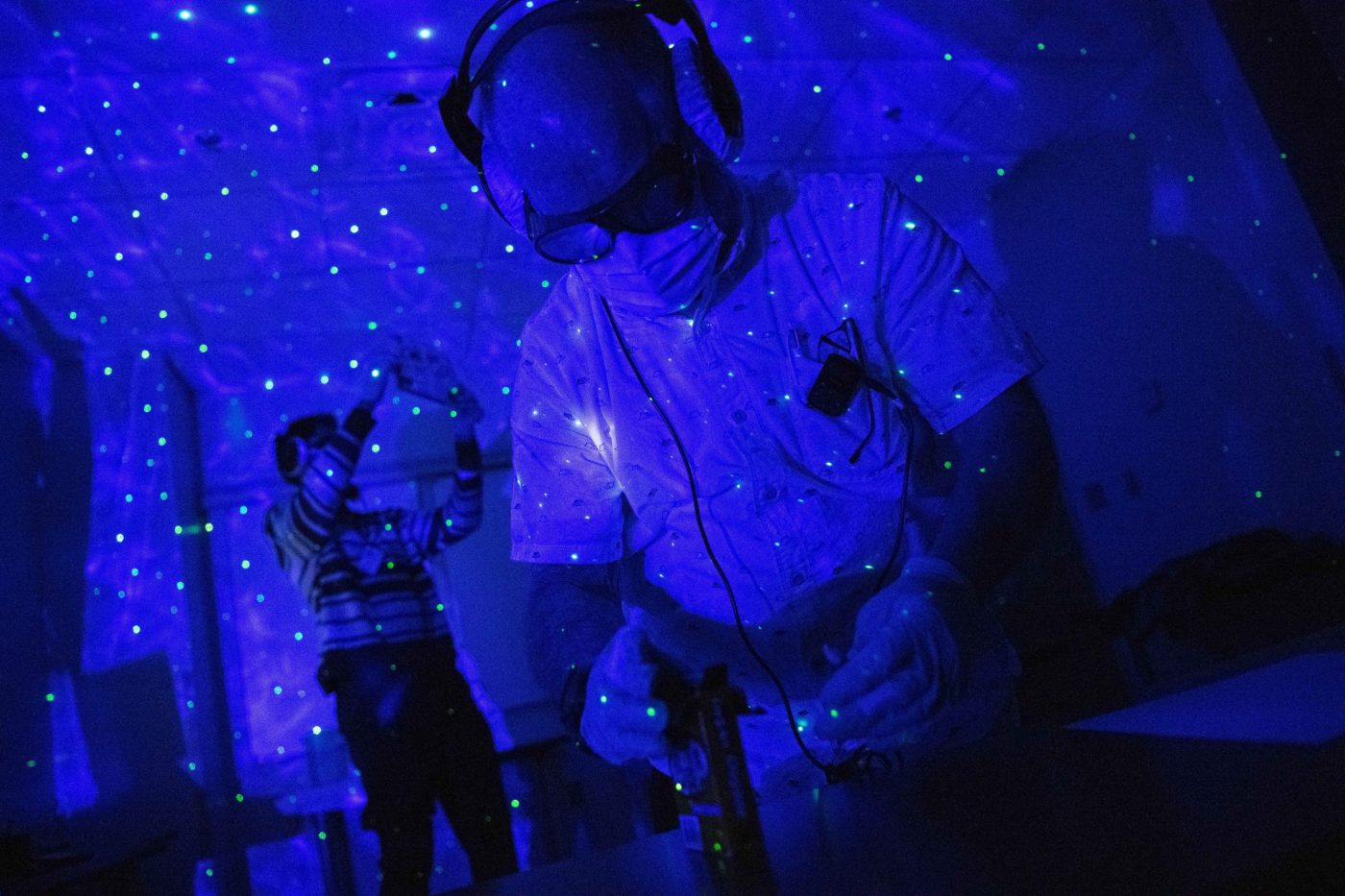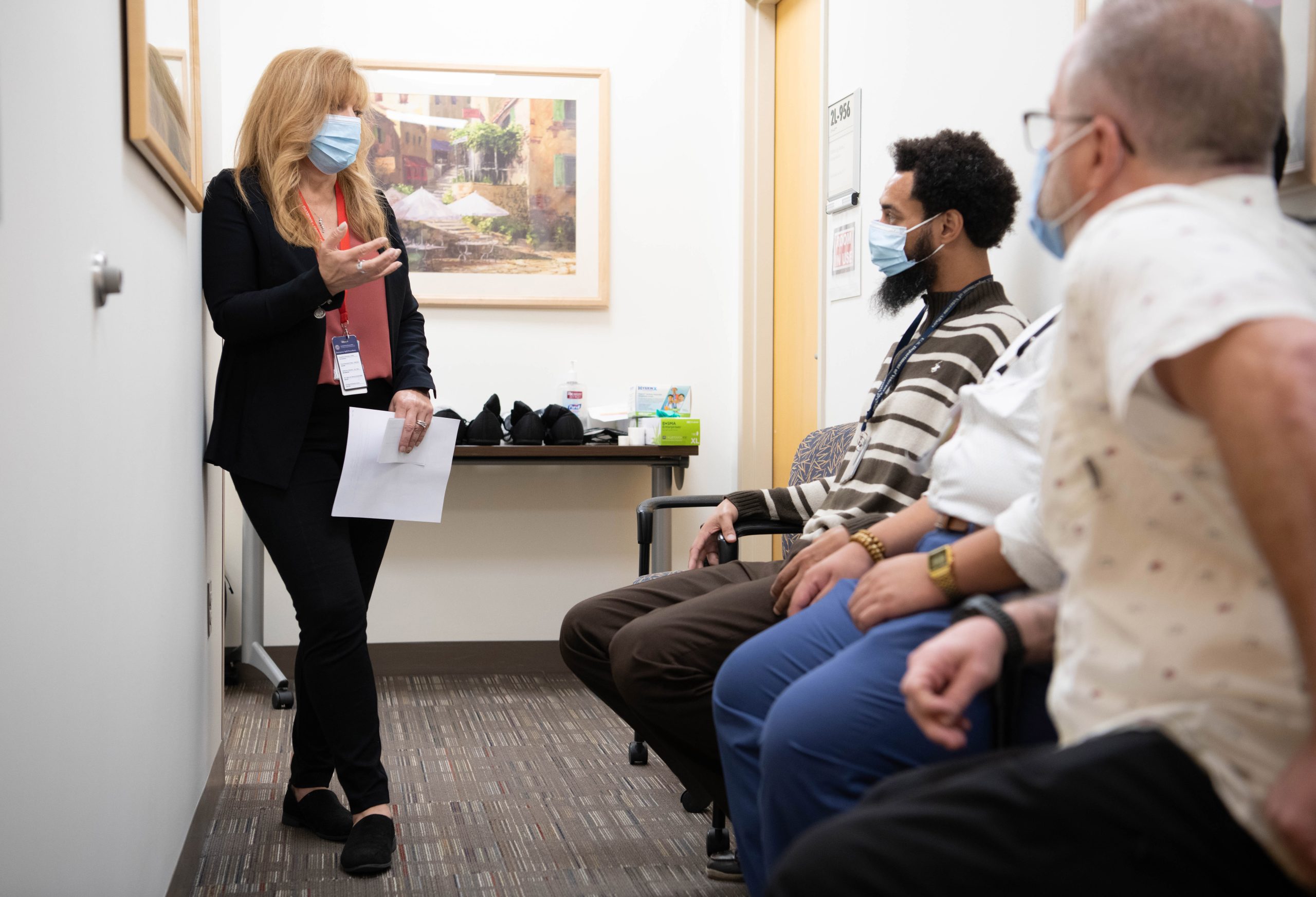Have you ever wondered what Veterans with dementia go through? How the changes of the disease affect their ability to carry out simple tasks each day? People with dementia suffer from memory disorders, personality changes and impaired reasoning, but without having dementia, it is incredibly hard to understand the difficulties a patient has.
The Dementia Experience, offered at the Simulation Learning, Evaluation, Assessment, and Research Network (SimLEARN) VHA National Simulation Center and other approved locations, provides that exact insight to VA medical providers by offering them an immersive experience where they can walk in the shoes of a person with dementia to understand their daily struggles.
The experience is led by Traci Ashworth, who serves as National Simulation director, ICT Program and is an experienced critical care nurse and nursing professor. On her motivation for the work she does, Ashworth says “I know how much of an impact it makes on participants and how much it will transcend the care they give to patients. As the daughter of a Veteran, I appreciate simulation-based education that can assist in changing our mind-set in a positive way. Once we understand what dementia patients may go through, the experience can provide empathy for what it’s like to have the disease and can help us to be better caregivers.”
Dementia research
In 2019, there were more than 72,900 estimated new cases of dementia in Veterans. In 2033, the projected number of Veterans expected to be suffering from the disease is estimated to be between 85,958 – 112,000. Ashworth knew that enhancing empathy towards Veterans with the disease was crucial. When working to create the experience, Ashworth and three other Veterans Integrated Services Network (VISN) 10 simulationists did extensive research and realized, “we don’t truly know what dementia patients go through, or how many forms of the disease there are. What participants go through during this experience is just the tip of the iceberg.”
During the 10-minute-long immersive portion of the experience, participants are placed into a group, where they are asked to perform tasks that someone with dementia may need to perform, but under conditions that make performing everyday functions difficult. A large element of the experience is that many aspects must remain private so that there is an element of surprise for those who participate next.
The experience has been described by participants as life changing and impactful. It is open to any VA employee, including those who do not have contact with patients. In the future, Ashworth hopes to expand the experience to family members of dementia patients.
“I think this is so important and provides a new perspective to understand what is going on with the patient, and to adopt a more sympathetic and charismatic approach,” said one participant in the experience.
Transportable experience
Currently, the experience is offered as part of the Foundational Intermediate Care Technician (FICT) program and is based out of the VHA National Simulation Center in Orlando, FL, but the experience is transportable and doesn’t have to be done at the simulation center. The experience is available for anyone who would like to have their staff participate, and previous locations where the experience has taken place include Dayton, OH; Fayetteville, NC; Palo Alto, CA; Cincinatti, OH; Cleveland, OH; Ann Arbor, MI; and Indianapolis, Indiana. As the experience continues to enlighten those who participate, Ashworth is working to expand it by adding additional locations to impact even more Veteran lives.
The outcomes have been truly impactful. The Dementia Experience leads to better understanding and care of Veterans with dementia as providers can build greater empathy towards their patients, change the way they relate to patients or family members, and gain a clearer understanding of what it is like to have dementia. At the end of each course, a survey is conducted, and participant responses are reviewed. Feedback has been extremely positive, which speaks to how beneficial the experience has been for VA employees.
Topics in this story
Link Disclaimer
This page includes links to other websites outside our control and jurisdiction. VA is not responsible for the privacy practices or the content of non-VA Web sites. We encourage you to review the privacy policy or terms and conditions of those sites to fully understand what information is collected and how it is used.
More Stories
Bob Jesse Award celebrates the achievements of a VA employee and a team or department that exemplifies innovative practices within VA.
The Medical Foster Home program offers Veterans an alternative to nursing homes.
Watch the Under Secretary for Health and a panel of experts discuss VA Health Connect tele-emergency care.







